[Exploring the North-South ‘Spy War’]
Part 2: The life and times of South Korean operative Chung Kyu-phil
In July 2010, Colonel Chung Kyu-phil of the South Korean Military Intelligence Command arrived in Beijing under a secret mission. This marked his third deployment to China as an intelligence officer targeting North Korea.
Previously, he had served as a black-ops agent in Shenyang (1995) under a cover identity and later as a white-ops agent at the South Korean Embassy in Beijing (2002). This time, he was deployed as the Military Attaché at the South Korean Embassy.
Chung’s mission was to establish a secret hotline between the South and the North, as instructed by a powerful figure within the South Korean government. The Lee Myung-bak administration was attempting to revive a summit between President Lee and North Korean leader Kim Jong-il, a meeting that had failed to materialize the previous year. However, communication lines with the North were completely severed, and it was Chung’s task to reopen and secure this channel.
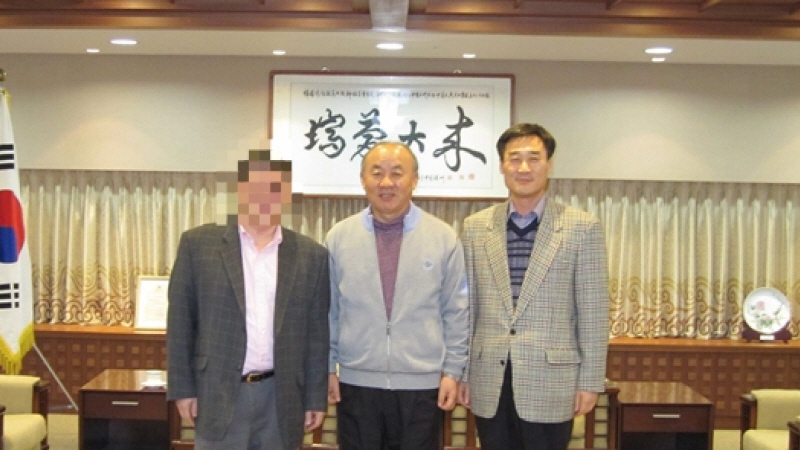
At that time, the South Korean Ambassador to China was Ryu Woo-ik, who had previously served as the Chief of Staff to President Lee Myung-bak. Ryu played a significant role in bringing Chung into this mission.
The connection between Chung and Ryu began in January 2010, when a black-ops agent from the South Korean Military Intelligence Command was arrested by Chinese authorities during an operation. Chung was urgently dispatched to Beijing to negotiate the release of the detained operative. During this mission, Chung had the opportunity to meet with Ryu Woo-ik.
[Behind enemy lines: How a South Korean spy influenced Hwang Jang-yop’s defection]
Impressed by Chung’s extensive knowledge and experience with China and North Korea, Ryu realized the need for a North Korea expert like Chung, especially as inter-Korean relations had reached a nadir following the failed summit attempt. Consequently, Ryu requested Chung’s deployment to Beijing, citing the need to strengthen diplomatic relations with China and intelligence-gathering capabilities against North Korea. The then Minister of Labor, Im Tae-hee, also supported this request, facilitating Chung’s assignment to China.
Chung’s selection was strategic. Between 2009 and 2010, inter-Korean relations rapidly shifted from a hopeful reconciliation to a precarious military standoff, akin to a rollercoaster ride from heaven to hell.
The mood for reconciliation had been rapidly developing. In September 2009, six South Korean campers died due to a sudden release of water from North Korea’s Hwanggang Dam into the Imjin River in Yeoncheon, Gyeonggi Province. Chung remotely supported the negotiation team in Beijing, and North Korea uncharacteristically expressed “regret and condolences.”
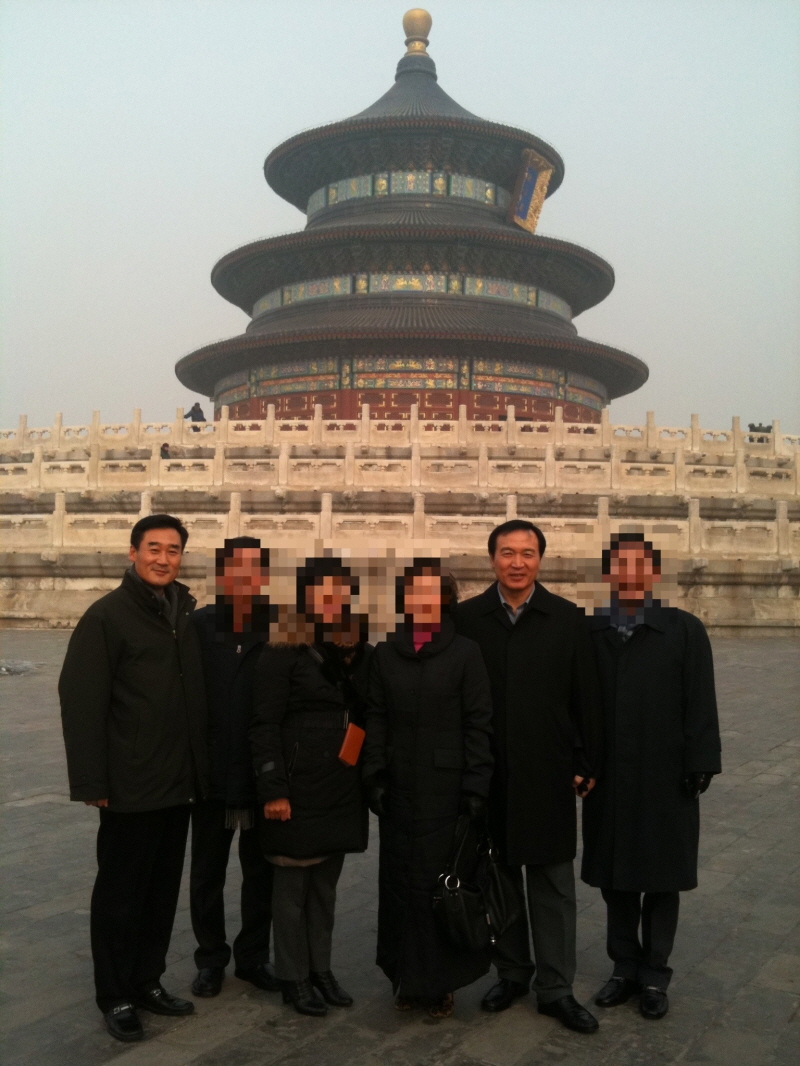
President Lee Myung-bak, eager to ensure the success of the inter-Korean summit by the end of 2009, tasked Labor Minister Im with advancing the discussions. This led to a secret meeting in Shanghai and a subsequent visit by Im to Singapore in October, where he met with Kim Yang-gon, a senior North Korean official, to draft a memorandum of understanding for the summit.
An unprecedented inter-Korean summit under a conservative administration seemed within reach. However, the situation deteriorated over the issue of providing 50,000 tons of corn to North Korea, a promise made by the previous Roh Moo-hyun administration.
Im Tae-hee later reflected in a media interview: “We decided to provide the 50,000 tons of corn after internal discussions, but the Ministry of Unification, which was dominated by hardliners, offered only 10,000 tons to North Korea.”
The hardliners aimed to use the corn as leverage, but this insulted North Korea’s pride. As a result, the provision of corn was canceled, and the 2009 inter-Korean summit evaporated like a mirage. North Korea lost faith in the Lee Myung-bak administration.
The rise of North Korea’s hardliners and the Cheonan Sinking
By 2010, inter-Korean relations had entered a period of deep freeze, with communication lines cut off. North Korean hardliners, represented by Kim Yong-chol, the head of the Reconnaissance General Bureau under the National Defense Commission, began to rise to power, sidelining moderates like Kim Yang-gon from the United Front Department. Chung Kyu-phil revealed new information about the relationship between the summit and Kim Jong-un, based on intelligence gathered from North Korean operatives he had contacted.
“The push for the inter-Korean summit was initiated before Kim Jong-un became widely known,” Chung explained. “The strategy was to attribute the success of the summit to Kim Jong-un, thereby highlighting him as the successor. North Korean leadership was furious when this grand plan collapsed due to what they perceived as South Korea’s betrayal. The failure to deliver the promised 50,000 tons of corn further fueled the hardliners, leading to the Cheonan incident.”
Intel on the ‘Kamikaze-style attack’
On March 26, 2010, the Cheonan sinking occurred off the coast of Baengnyeong Island, the result of a surprise torpedo attack by a North Korean submarine. This tragic event claimed the lives of 46 South Korean sailors and was deemed a severe national security crisis. In response, inter-Korean exchanges were halted, and relations froze. Jung provided intriguing testimony about the events leading up to the incident.
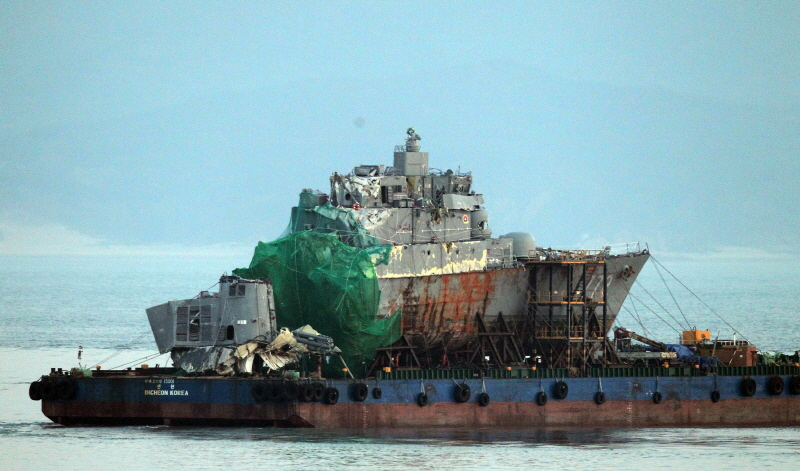
Six months before the Cheonan sinking, while discussions about the inter-Korean summit were still ongoing, Chung, who was the Deputy Commander of the Military Intelligence Command’s Busan unit, received intelligence from an operative near the China-North Korea border.
According to Chung, “A North Korean operative hinted that the only way to deal with the South was through an underwater kamikaze attack, even suggesting the possibility of a suicide mission to sink a ship.”
Chung, familiar with North Korea’s dual-faced strategies, immediately recognized the potential danger. North Korea is known for its duplicity, speaking of peace while preparing for sudden attacks. Chung assessed that a South Korean naval vessel could be at imminent risk of attack.
He urgently reported this intelligence through official channels. Unsettled, he also directly informed the head of the Military Security Command at the Naval Operations Command, who in turn reported it to the Naval Operations Commander. The Commander quickly flew by helicopter to the 2nd Fleet Command in Pyeongtaek and issued an order.
“He instructed them to be prepared for a kamikaze-style attack by North Korean suicide commandos,” said Chung. Although the Naval Operations Command and its Security Division took appropriate measures, they could not prevent the Cheonan sinking six months later.
Unceasing North Korean provocations
North Korea’s provocations did not cease. In November of that year, the Yeonpyeong Island shelling incident occurred, resulting in the deaths of two South Korean Marines and injuries to 18 others, including civilians. The hardliners in North Korea appeared to believe that provocations were necessary to maintain the upper hand in negotiations.
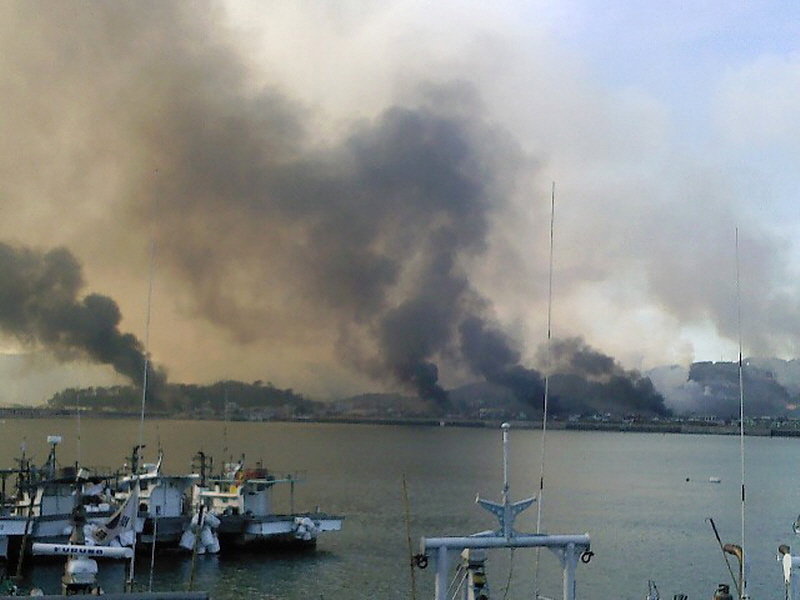
In February 2011, another sensitive incident occurred when a North Korean vessel drifted across the Yellow Sea to Yeonpyeong Island, carrying 31 North Koreans. Four of them expressed their desire to defect to the South. This was a potentially explosive issue that could provoke North Korea.
Kim Man-soo, a counselor from the United Front Department at the North Korean Embassy in Beijing, called Chung, seeking a meeting to discuss the drifting vessel incident.
They met at a coffee shop in the Hilton Hotel next to the South Korean Embassy. Kim Man-soo’s tone was firm.
The official North Korean position was that all 31 people, including those who wished to defect, must be returned. Chung could not make this decision on his own and relayed the matter to Im Tae-hee, then Chief of Staff to the President. The response was clear:
“We cannot send back those who have expressed their intention to defect. Even if it strains inter-Korean relations, it is not acceptable to do so on humanitarian grounds. If necessary, North Korea can take back the remaining 27, but further delays may jeopardize the return of those 27 as well.”
Chung communicated Im’s directive to Kim Man-soo, who left the meeting in anger. A few days later, North Korea quietly informed the South to return the 27 people via the sea route, effectively abandoning their earlier demand for the return of all 31.
Secret contact with Kim Jong-un’s inner circle
Four months after the drifting vessel incident, in June, North Korea caused a stir by revealing details of secret inter-Korean contacts. This unprecedented move was highly unusual in diplomatic practice.
Chung intervened to contain the situation. He met Kim Man-soo at a hotel bar and, over a Corona beer, conveyed a warning from the South Korean government.
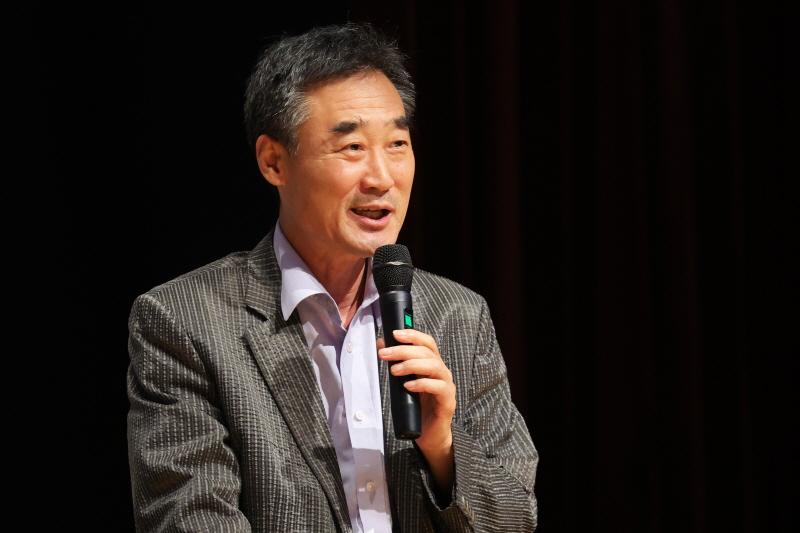
Further revelations by North Korea could lead to the complete collapse of inter-Korean relations. To preserve the minimal room for future negotiations, additional disclosures must be avoided.
While North Korea initially planned further disclosures, Chung was uncertain whether his warning had been effective. However, after their meeting, no further revelations emerged from North Korea.
As North Korea’s reckless actions intensified, the need for a hotline became more urgent. By late July, Chung successfully established contact with a close associate of Kim Jong-un, bringing the effort to secure a channel for the summit to fruition.
(To be continued)
BY DAEHOON KO, MINSANG KIM, YOUNGNAM KIM [ko.daehoon@joongang.co.kr]




